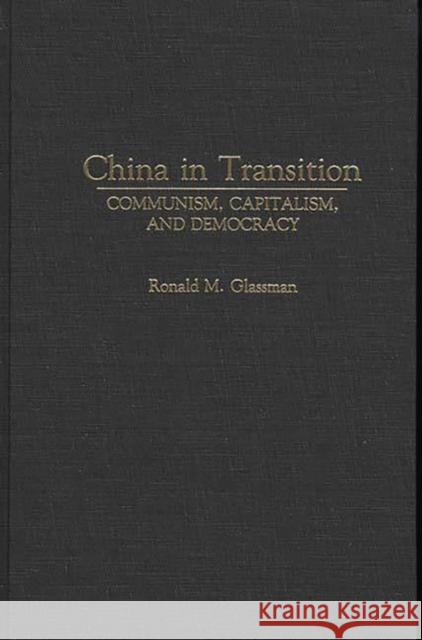China in Transition: Communism, Capitalism, and Democracy » książka
China in Transition: Communism, Capitalism, and Democracy
ISBN-13: 9780275936143 / Angielski / Twarda / 1991 / 304 str.
As recent events in the Far East have demonstrated, China is a nation that is in the midst of a massive social and political upheaval. The Chinese leadership is as uncertain as the populace on the future course for modern China, and remains dramatically split over capitalism and communism, pragmatism and realism, and democracy and despotism. In this work, Ronald Glassman analyzes the remarkable changes that are occurring in China, and examines the country's difficult movement from state-run economics to free enterprise, and from Communist Party dictatorship to electoral democracy.
The book focuses on the emergence of a modern middle class in China, illuminating their political and economic desires and their impact in a postcommunist society. Glassman provides a Weberian analysis of the recent radical changes, using the concepts of rationalization, the bureaucratic middle strata, the greater degree of efficiency of capitalism over socialism, the independent power of the state, and charismatic leadership to help explain China's transition to modernity. His study is divided into four sections, covering the majority middle class and democracy, free enterprise and democracy, the transition to a legal democratic state, and political culture, legitimacy, and charisma. The book concludes with the thesis that China will make the transition to democracy when the new generation of leaders comes to power and the middle class becomes the mediating stratum. Students of sociology, political science, and Chinese history will find this work to be a valuable resource, as will both public and academic libraries.











